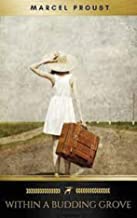In a turn of uncharacteristic succinctness, Gioachino Rossini, himself the composer of long-winded and often empty vocal gymnastics undertaken because they were possible - or not! - rather than apposite or even aesthetic, uttered a remark, probably between courses, probably apocryphally, somewhere sandwiched between the tournedos Rossini and the baked Alaska, which wasn’t called by that name at the time because the Americans, who put the dish and the state on the map, had not yet purchased the real estate, a remark that became an oft-quoted opinion on Richard Wagner, a fellow composer, who was actually writing music at the time, rather than being a professional whipped cream spreader on the back of cigarette packets. “Wagner‘s music,” said the composer, “has its moments. It’s the hours in between that are the problem.” No doubt the other guests, also choking by now on the strozzapreti, probably guffawed their recognition of the maestro’s wit. And that was two sentences.
It is a sentiment that is often associated with the so-called task of reading A la recherche de temps perdu of Marcel Proust. He does go on, doesn’t he? Well, yes, a bit like life really, until the end. It’s where we go along the way that forms the point, a point of departure, a point of destination, a point of return and eventually no point at all. And that is the point, at least for one reader of this work.
Marcel Proust
lives amongst an elite. He describes them in detail. He brushes shoulders,
bellies and other parts on a regular, even daily basis, with members of
“society”. It was Margaret Thatcher who claimed there was no such thing as
society, only the individuals who constitute it. It is wonderful how something
can be defined not to exist in terms of an agglomeration of things that
unquestionably do. I digress, and so does Marcel Proust, regularly, but not
because digression is an end in itself, rather because digression is all we
have. Of course, when one is bored with such society one can always retire to other parts and brush
bellies with one of those working women - never ladies! - who have a little
time for digression. For them, it's the
matter in hand that takes precedence, but usually not in the hand, itself.
Times, it seems, have changed. Perhaps…
“Oh, my dear Charles," she went on, "what a bore it can be, dining out. There are evenings when one would sooner die! It is true that dying may be perhaps just as great a bore, because we don't know what it's like." A servant appeared. It was the young lover who used to have trouble with the porter, until the Duchess, in her kindness of heart, brought about an apparent peace between them. "Am I to go up this evening to inquire for M. le Marquis d'Osmond?" he asked. "Most certainly not, nothing before to-morrow morning. In fact I don't want you to remain in the house to-night. The only thing that will happen will be that his footman, who knows you, will come to you with the latest report and send you out after us. Get off, go anywhere you like, have a woman, sleep out, but I don't want to see you here before to-morrow morning." An immense joy overflowed from the footman's face. He would at last be able to spend long hours with his ladylove, whom he had practically ceased to see ever since, after a final scene with the porter, the Duchess had considerately explained to him that it would be better, to avoid further conflicts, if he did not go out at all. He floated, at the thought of having an evening free at last, in a happiness which the Duchess saw and guessed its reason
In The Guermantes Way, Marcel
Proust describes these creatures of society, upper crust, titled, even royal,
certainly rich if we ignore the debts, propertied, (no doubt proprietarian in
Piketty’s terms), conceited, racist, learned yet ignorant, self-obsessed,
selfish. They even have the odd good point. I could go on. They do. But at the
root, they are pretty ordinary rather than pretty.
But in the other boxes, everywhere almost, the white deities who
inhabited those sombre abodes had flown for shelter against their shadowy walls
and remained invisible. Gradually, however, as the performance went on, their
vaguely human forms detached themselves, one by one, from the shades of night
which they patterned, and, raising themselves towards the light, allowed their
semi-nude bodies to emerge, and rose, and stopped at the limit of their course,
at the luminous, shaded surface on which their brilliant faces appeared behind
the gaily breaking foam of the feather fans they unfurled and lightly waved,
beneath their hyacinthine locks begemmed with pearls, which the flow of the
tide seemed to have caught and drawn with it…
They dress to the
nines, but for many of the species adornment makes little difference.
The Marquis de Palancy, his face bent downwards at the end of his long neck, his round bulging eye glued to the glass of his monocle, was moving with a leisurely displacement through the transparent shade and appeared no more to see the public in the stalls than a fish that drifts past, unconscious of the press of curious gazers, behind the glass wall of an aquarium. Now and again he paused, a venerable, wheezing monument, and the audience could not have told whether he was in pain, asleep, swimming, about to spawn, or merely taking breath
This society is
certainly snobbish, but it is also deeply racist. But then that was the norm of
the time, wasn’t it? They were, after
all, professedly Christian in an era where, in order to claim this allegiance,
it may have been almost expected to be anti-Semitic. But a theme that underpins
this society’s ever-competitive camaraderie deals with opposing and divisive views
on the Dreyfus affair, the details of which may now be referenced with ease
across a democratic internet, noted for its thorough fair-mindedness,
disinterest and impartiality.
"In the first place because at heart all these people are anti-Semites," replied Swann, who, all the same, knew very well from experience that certain of them were not, but, like everyone who supports any cause with ardour, preferred, to explain the fact that other people did not share his opinion, to suppose in them a preconceived reason, a prejudice against which there was nothing to be done, rather than reasons which might permit of discussion. Besides, having come to the premature term of his life, like a weary animal that is goaded on, he cried out against these persecutions and was returning to the spiritual fold of his fathers. "Yes, the Prince de Guermantes," I said, "it is true, I've heard that he was anti-semitic." "Oh, that fellow! I wasn't even thinking about him. He carries it to such a point that when he was in the army and had a frightful toothache he preferred to grin and bear it rather than go to the only dentist in the district, who happened to be a Jew, and later on he allowed a wing of his castle which had caught fire to be burned to the ground, because he would have had to send for extinguishers to the place next door, which belongs to the Rothschilds."
Like the contemporary and newly enacted Brexit in the United Kingdom, the Dreyfus affair began in untruths married to conceit and racism, peddled by those with ideological interest in pursuing it, perpetrated by others who found their own identity in an insane bigotry that appealed to inane prejudice, and, unlike Brexit at least thus far, was eventually revealed as utter untruth. What it did do was bring to the fore the ideological cleavages born of racism that cut through this otherwise apparently monolithic society, revealing its inhabitants’ penchant for competition rather than the cooperation their decorum tried to advertise. For all their apparent politeness, for all their overt adherence to manners, these people are vicious cynics capable of waging war to achieve their interests. And that is precisely what they would do.
And the concerns
of difference are so small minded that, like Remainers and Brexiteers, these
Dreyfusards and their opponents cannot conceive that anything of interest might
live outside their own myopic ambit. The universe, it seems, consists of my
parlour and the rest.
…at this point in the social year, when people invited the Duchesse de Guermantes to dinner, making every effort to see that she was not already engaged, she declined, for the one reason of which nobody in society would ever have thought; she was just starting on a cruise among the Norwegian fjords, which were so interesting. People in society were stupefied, and, without any thought of following the Duchess's example, derived nevertheless from her action that sense of relief which one has in reading Kant when after the most rigorous demonstration of determinism one finds that above the world of necessity there is the world of freedom. Every invention of which no one has ever thought before excites the interest even of people who can derive no benefit from it. That of steam navigation was a small thing compared with the employment of steam navigation at that sedentary time of year called 'the season.' The idea that anyone could voluntarily renounce a hundred dinners or luncheons, twice as many afternoon teas, three times as many evening parties, the most brilliant Mondays at the Opera and Tuesdays at the Français to visit the Norwegian fjords seemed to the Courvoisiers no more explicable than the idea of Twenty Thousand Leagues Under the Sea…
But just how
self-obsessed and selfish these people are is indicated by the Guermantes’ reaction
to Swann’s revelation that he has just three months to live.
"I don't know why I am telling you this; I have never said a word to you before about my illness. But as you asked me, and as now I may die at any moment. But whatever I do I mustn't make you late; you're dining out, remember," he added, because he knew that for other people their own social obligations took precedence of the death of a friend, and could put himself in her place by dint of his instinctive politeness. But that of the Duchess enabled her also to perceive in a vague way that the dinner to which she was going must count for less to Swann than his own death. And so, while continuing on her way towards the carriage, she let her shoulders droop, saying: "Don't worry about our dinner. It's not of any importance!" But this put the Duke in a bad humour, who exclaimed: "Come, Oriane, don't stop there chattering like that and exchanging your jeremiads with Swann; you know very well that Mme. de Saint-Euverte insists on sitting down to table at eight o'clock sharp. We must know what you propose to do; the horses have been waiting for a good five minutes. I beg your pardon, Charles," he went on, turning to Swann, "but it's ten minutes to eight already. Oriane is always late, and it will take us more than five minutes to get to old Saint-Euverte's."
I mean, Darling, doesn’t the man realise
that in society there is a time and place for everything? And this, surely, is
neither the time nor the place to talk of dea… of such things! Get a move on!
We’ll be late! Our friend’s demise will have to wait until after liqueurs,
dessert at least. Bid him goodbye and come along! But then there are things
that are just not done, Darling. Such as…
"You know, we can talk about that another time; I don't believe a word you've been saying, but we must discuss it quietly. I expect they gave you a dreadful fright, come to luncheon, whatever day you like" (with Mme. de Guermantes things always resolved themselves into luncheons), "you will let me know your day and time," and, lifting her red skirt, she set her foot on the step. She was just getting into the carriage when, seeing this foot exposed, the Duke cried in a terrifying voice: "Oriane, what have you been thinking of, you wretch? You've kept on your black shoes! With a red dress! Go upstairs quick and put on red shoes, or rather," he said to the footman, "tell the lady's maid at once to bring down a pair of red shoes."
I mean, black
shoes with a red dress… What could she be thinking of? Well he was
Jewish, after all… Perhaps she should just have kept talking… The need to
speak prevents one not merely from listening but from seeing things, and in
this case the absence of any description of my external surroundings is
tantamount to a description of my internal state… I bet she talked quickly and, at the same
time, said very little. Just how little Marcel Proust says in the five hundred
pages that constitute The Guermantes Way might just be its point. And,
in the grand run of time, we have yet to reach perhaps the crowning absurdity
of the century, The Great War, the apparently heroic event of unquestioned and
racist imperialism we have all recently been honouring after its centenary.
Times change, perhaps also assumptions.









